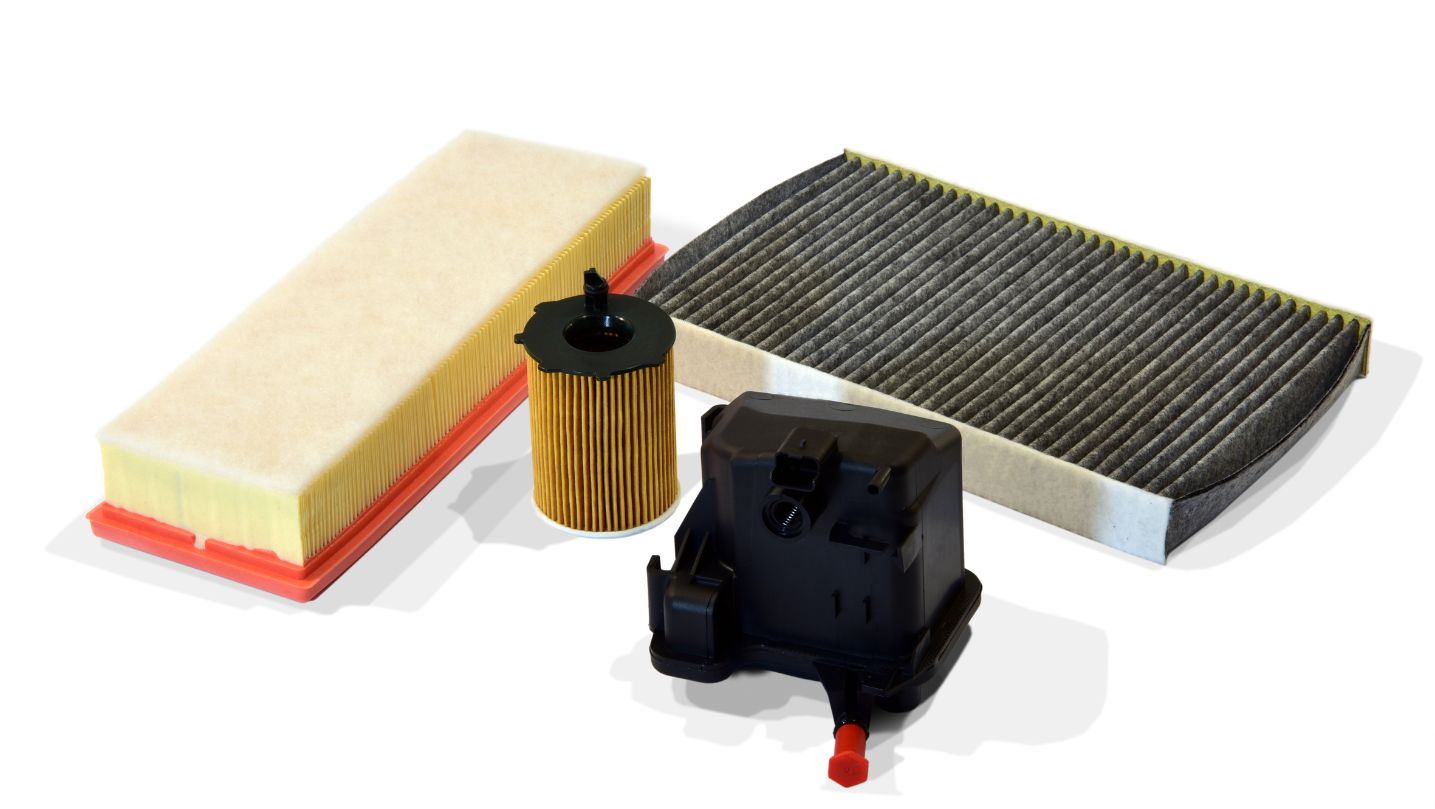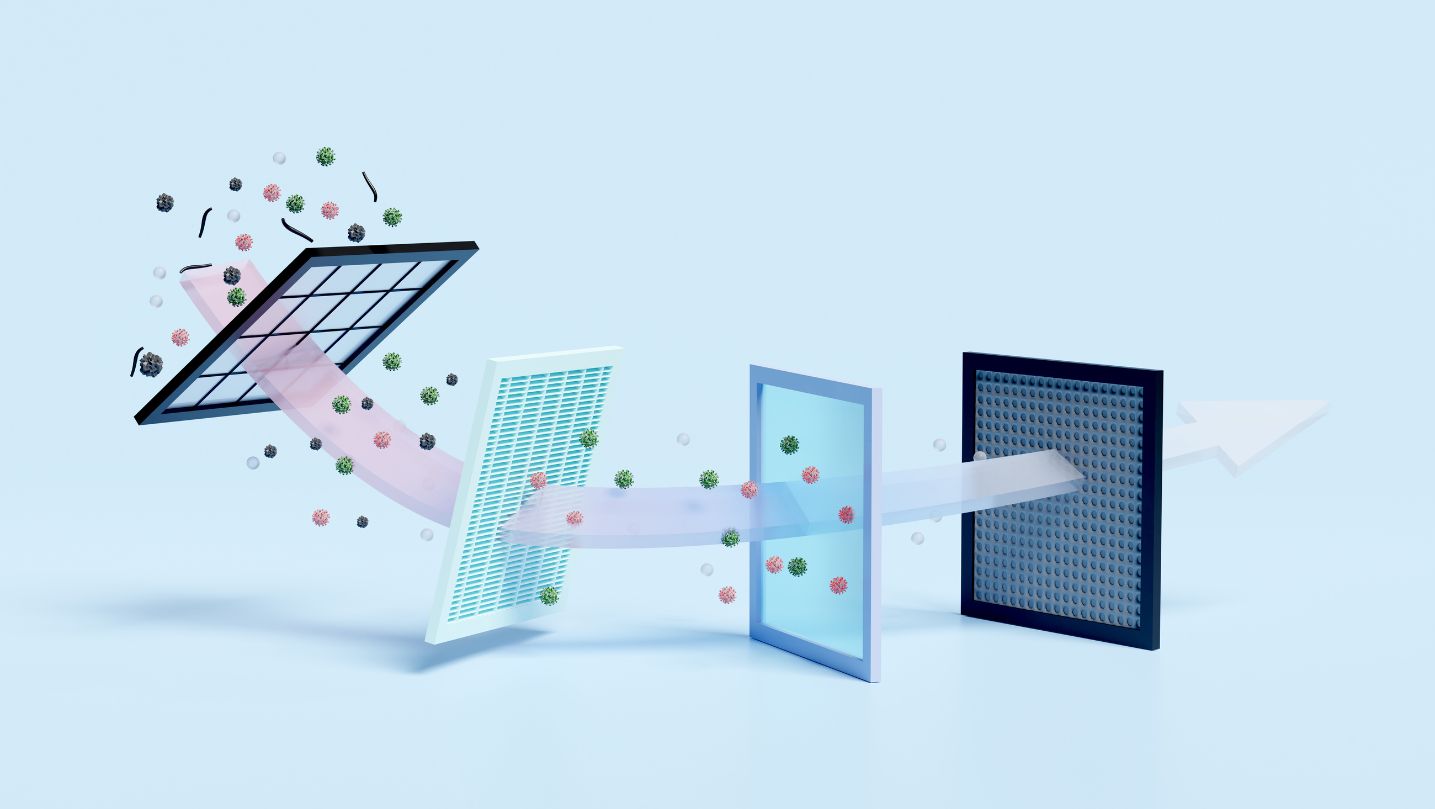
In this article, you will learn about air filters, their most common types and the benefits they bring to the table. So read till the end to learn more.
What Are Air Filters?
Air filters are components or devices used in automobiles, air purifiers, HVAC (heating, ventilation, and air conditioning) systems, and other systems. The way they work is by capturing and stopping airborne particles including dust, pollen, mold spores, pet dander, and other pollutants. By reducing the quantity of allergens and hazardous compounds in indoor air, this process helps to enhance its quality.
Exploring Various Types of Air Filters
Fibreglass Filters:
Layered fibreglass fibres are contained inside a cardboard or metal frame to form fibreglass filters. They are the most affordable choice out there.
- Efficiency of Filtration: Good at catching larger particles such as dust and lint, but may not be as effective at removing allergens and smaller particles.
- Suitability: Because they are inexpensive, they are frequently utilized in residential HVAC systems, but they may need to be replaced more frequently.
Pleated Filters:
The filtration surface area of these filters is enhanced through the use of pleated sheets of cotton or polyester that are encased in a robust frame.
- Improved Filtration: Compared to fibreglass filters, their larger surface area makes it possible to capture smaller particles.
- Longevity: Because pleated filters are more efficient than fibreglass filters, they typically last longer.
HEPA (High-Efficiency Particulate Air) Filters:
HEPA filters consist of densely packed glass fibres arranged randomly, designed to capture particles as small as 0.3 microns.

- Exceptional Filtration: Highly effective in removing various pollutants, including allergens, bacteria, viruses, and microscopic particles, with efficiency reaching 99.97%.
- Applications: Commonly used in hospitals, laboratories, and environments requiring ultra-clean air due to their superior filtration capabilities.
Electrostatic Filters:
These filters work by attracting and trapping particles with an electrostatic charge.
- Enhanced Efficiency: Certain electrostatic filters function better at filtration because they can capture smaller particles more successfully than conventional filters.
- Reusable Options: Some models can be washed and reused, which lowers the environmental impact and overall costs.
Activated Carbon Filters:
Volatile organic compounds (VOCs), smells, and gasses are absorbed and eliminated by activated carbon fibres or granules, which make up activated carbon filters.
- Odour Removal: Used in conjunction with other filters for complete air purification, this filter is effective in eliminating chemicals and odours from the air.
- Chemical Filtration: Especially helpful in settings where hazardous chemicals, smoke, or fumes need to be removed.
Every kind of air filter has special qualities and benefits that are appropriate for various applications. Selecting the best filter to improve indoor air quality depends on several factors, including system compatibility, efficiency requirements, and specific contaminants. It is crucial to understand their qualities and capabilities.
Advantages of Using Air Filters
There are several significant benefits of using custom-made air filters to enhance the quality of indoor air. First of all, they significantly reduce the quantity of allergens and airborne contaminants, giving inhabitants a cleaner and healthier environment. Consequently, those who are susceptible to air pollution have improved respiratory health, reduced symptoms of allergies, and fewer symptoms of asthma. Furthermore, air filters are essential for maintaining HVAC systems because they keep dust and debris from building up on its parts, extending their lifespan and improving their performance. Air filters are a necessary investment for preserving both air quality and system performance because of this preventive step, which also helps to save maintenance costs related to system breakdowns caused by debris buildup.
Cost Considerations
Cost considers both the initial outlay and ongoing maintenance requirements when assessing air filters. Fibreglass filters are a popular option for customers on a tight budget because they are usually less expensive upfront. They might need to be replaced more frequently because their effectiveness might be restricted to larger particles.

Conversely, HEPA filters work better at capturing allergens and tiny particles, potentially saving maintenance costs over time, even though they are initially more expensive due to their sophisticated filtration capabilities. Pleated filters are a good compromise between price and functionality because of their longer lifespan and increased efficiency.
Costs for maintenance must also be taken into account. Even though they cost more initially, filters that need to be changed more frequently than washable and reusable filters may result in greater long-term costs. When choosing an air filter, it is critical to balance cost-effectiveness and improved air quality by considering the initial cost against efficiency, longevity, and maintenance requirements.
Final Words
Making educated decisions for preserving the best possible indoor air quality requires an understanding of the importance of air filters, their various types, related benefits, and cost considerations. Healthy indoor environments are greatly enhanced by air filters, which play a crucial role in capturing and getting rid of allergens, pollutants, and airborne particles.
Examining different kinds of air filters, such as HEPA and fibreglass, reveals a range of choices catering to particular filtration requirements. Although fibreglass filters are less expensive, they may not be as effective against smaller pollutants. Pleated filters are a good compromise between longevity and efficacy, and HEPA filters are excellent at capturing small particles, which is why they are appropriate for specific applications.
There are advantages to using air filters beyond just filtering. They considerably lessen the symptoms of respiratory issues, allergies, and asthma by improving indoor air quality. Furthermore, they keep junk buildup from harming HVAC systems, increasing their longevity and encouraging peak performance while potentially reducing long-term maintenance costs.
To put it simply, air filters are essential to creating healthier and cozier indoor environments—they are not just parts. Making educated choices regarding air filtration systems empowers individuals to prioritize clean air, ultimately promoting better health and well-being for occupants in both residential and commercial spaces.














